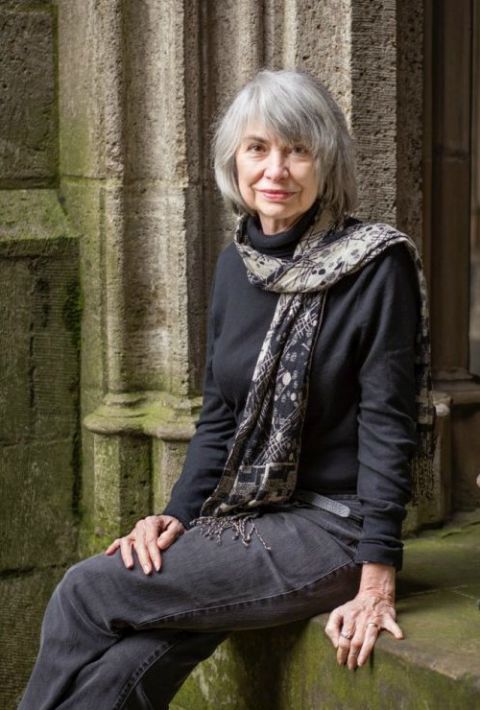
The Religious Roots of Environmental Justice – Call For Papers Or Presentations
Sponsored by The Journal for Cultural and Religious Theory and The New Polis in co-operation with the University of Denver
When: Friday, Oct. 13 to Saturday, Oct. 14, 2023
Where: Online (Zoom) – Registration Required
Register or click on this link
Keynote Speaker: Catherine Keller

Catherine Keller practices theology as a relation between ancient hints of ultimacy and current matters of urgency. As the George T. Cobb Professor of Constructive Theology in the Theological School and Graduate Division of Religion of Drew University, she teaches courses in process, political, and ecological theology. Within and beyond Christian conversation, she has all along mobilized the transdisciplinary potential of feminist, philosophical, and pluralist intersections with religion.
Her most recent books invite at once contemplative and social embodiments of our entangled difference: Facing Apocalypse: Climate, Democracy, and Other Last Chances (Forthcoming April 2021); Political Theology of the Earth: Our Planetary Emergency and the Struggle for a New Public (2018); Intercarnations: On the Possibility of Theology (2017); and Cloud of the Impossible: Negative Theology and Planetary Entanglement (2014). Keller’s other books include On the Mystery: Discerning Divinity in Process (2008); God and Power: Counter-Apocalyptic Journeys (2005); Face of the Deep: A Theology of Becoming (2003); Apocalypse Now and Then: A Feminist Guide to the End of the World (1996); and From a Broken Web: Separation, Sexism, and Self (1986).
Description
The concept of “environmental justice” is a relatively recent addition to the discourses of religious and political theory. According to the Office of Legacy Management with the Department of Energy, environmental justice can be defined as “the fair treatment and meaningful involvement of all people, regardless of race, color, national origin, or income, with respect to the development, implementation, and enforcement of environmental laws, regulations, and policies.”
However, such laws are not sui generis, but have been elaborated in relatively recent times to long-standing spiritual attitudes and value propositions concerning what ought to be the human relationship to, and the character of our collective responsibility for, the natural order. Virtually all of the world’s historical as well as indigenous religious traditions harbor both implicit and explicit views about how human and non-human beings should cohabit as well as interact with each other.
The overriding question for the conference is in what specific ways do these traditions both inform and compel specific policies as well as ethical practices that constitute the spectrum of social action that counts as “environmental justice”.
PROGRAM
Abstracts can be found in hyperlinks under paper titles. All times are Mountain Daylight Time.
Friday, Oct. 13
8:15 am
Welcome and Opening Remarks
Carl Raschke, University of Denver
8:30 am
Jamir Akhtar, University of the Punjab
“Islamic Views on Resource Conservation: Environmental Justice”
9:00 am
Kevin Hujing, University of Denver
9:30 am
Zane Johnson, University of Denver/Iliff School of Theology
“Protestant Mysticism and Early Modern Environmentalism”
10:00 am
Break
10:30 am
Kev Grane, University of Denver/Iliff School of Theology
“Religious Sacrificial Sympathy: How Man Became More Valuable than Beast”
11:00
Mike Pope, Missional University
“The Image of God and Our Vocation of the Soil”
11:30 am
Elijah Prewitt-Davis, Mount St. Joseph University
“The Solar Nun: The Prophetic Action and Thought of Sr. Paula Gonzalez, S.C”
12:00 noon
Chris Durante, St. Peters University
“Religious Faith in Pursuit of Environmental Justice”
12:30 pm
Dan McKanan, Harvard Divinity School
“Ancestral Devotion, New England Conservation, and the Challenge of Environmental Justice”
1:00
Break
2:00 pm
Keynote address
Catherine Keller, Drew University
“Earth Matters: Generation, Motivation, Eco-civilization”
The very matter of our earthbound lives is ever more at stake. Ecological solidarity recognizes the asymmetrical responsibility of the generations: those will suffer most have done least to cause the crisis. Motivation for ecological transformation must cross that difference—and so materialize the shared future of our common home. Motives unfold through a resilient interaction of bodies, stories, facts, ethics, grief, anger, humor and beauty. To the shadowed hope of ecocivilization, might philosophy contribute an earthbound socio-cosmology?
3:30 pm
Break
4:00 pm
Kyler Barbour, University of Guelph
“The Axiology of Creation: Metaphysical Foundations for a Political Theology of the Environment”
4:30 pm
Calynn Dowler, Vanderbilt University
“Staging Climate Justice: Hindu Climate Ethics & Popular Performance in the Sundarbans”
5:00 pm
Lisa Jarnot, Drew University
“Against Recycling as Such: Cheap Grace in the Christian Response to Climate Collapse”
5:30 pm
Kiara Jorgenson, St. Olafs College
“Vocation as Placemaking: Protestant Theologies of Calling & Environmental Justice”
Saturday, Oct. 14
9:30 am
Convene
10:00 am
Robert Monson, University of Denver/Iliff School of Theology
“Seated at the Cross: What Black Disabled Bodies Can Teach Us About Environmental Justice”
10:30 am
Harpreet Kaur,
“Environmental Ethics in Sikhi – Gaps and Achievements in Connecting Theory and Practice”
11:00 am
Thomas Massaro, Fordham University
“The Environmental Ethics of Pope Francis: Parsing Key Terms and Claims in Laudato Si”
11:30 am
Ksenia Medvedeva, Institute of Philosophy and Sociology of the Polish Academy of Sciences
“Green parish” and Other Examples of ‘Ecological Conversion’ in the Orthodox Church in Greece”
12:00
Nick Mather, Regis University
12:30
